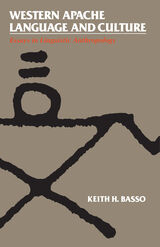2 books about Linguistic Anthropology

An Essay on Negation
For a Linguistic Anthropology
Paolo Virno
Seagull Books, 2018
A vital addition to Seagull’s growing Italian List that focuses on leftist Italian thought, bringing famous as well as little-known yet crucial voices into the English language.
As speaking animals, we continuously make use of an unassuming grammatical particle, without suspecting that what is at work in its inconspicuousness is a powerful apparatus, which orchestrates language, signification, and the world at large. What particle might this be? The word not.
In Essay on Negation, Paolo Virno argues that the importance of the not is perhaps comparable only to that of money—that is, the universality of exchange. Negation is what separates verbal thought from silent cognitive operations, such as feelings and mental images. Speaking about what is not happening here and now, or about properties that are not referable to a given object, the human animal deactivates its original neuronal empathy, which is prelinguistic; it distances itself from the prescriptions of its own instinctual endowment and accesses a higher sociality, negotiated and unstable, which establishes the public sphere. In fact, the speaking animal soon learns that the negative statement does not amount to the linguistic double of unpleasant realities or destructive emotions: while it rejects them, negation also names them and thus includes them in social life. Virno sees negation as a crucial effect of civilization, one that is, however, also always exposed to further regressions. Taking his cue from a humble word, the author is capable of unfolding the unexpected phenomenology of the negating consciousness.
As speaking animals, we continuously make use of an unassuming grammatical particle, without suspecting that what is at work in its inconspicuousness is a powerful apparatus, which orchestrates language, signification, and the world at large. What particle might this be? The word not.
In Essay on Negation, Paolo Virno argues that the importance of the not is perhaps comparable only to that of money—that is, the universality of exchange. Negation is what separates verbal thought from silent cognitive operations, such as feelings and mental images. Speaking about what is not happening here and now, or about properties that are not referable to a given object, the human animal deactivates its original neuronal empathy, which is prelinguistic; it distances itself from the prescriptions of its own instinctual endowment and accesses a higher sociality, negotiated and unstable, which establishes the public sphere. In fact, the speaking animal soon learns that the negative statement does not amount to the linguistic double of unpleasant realities or destructive emotions: while it rejects them, negation also names them and thus includes them in social life. Virno sees negation as a crucial effect of civilization, one that is, however, also always exposed to further regressions. Taking his cue from a humble word, the author is capable of unfolding the unexpected phenomenology of the negating consciousness.
[more]

Western Apache Language and Culture
Essays in Linguistic Anthropology
Keith H. Basso
University of Arizona Press, 1990
Seven essays, collected here for the first time, define some of the central concerns of linguistic anthropology through the close study of Western Apache, a language of astonishing complexity. All of the essays have been revised for this anthology. Basso, a major authority in the field of linguistic anthropology, has drawn on fieldwork at the village of Cibecue, whose residents speak a dialect of Western Apache that is spoken nowhere else. He shows how intricacies of language—place names, metaphor, uses of silence—help a people define their very existence, so that, in the words of one Apache woman, "If we lose our language, we will lose our breath; then we will die and blow away like leaves." His essays amply demonstrate that, while Apache language and culture are changing in response to modernization, they remain intricate, vital and unique. These essays illustrate not only the complexity of a particular cultural world as it has emerged to one observer over a protracted period of intensive fieldwork, but also the natural movement from the study of grammatical categories to that of language use and on to the study of the conceptual system underlying it. Each essay addresses a significant theoretical problem; taken together they constitute a microcosm of the anthropological understanding of language.
CONTENTS
The Western Apache Classificatory Verb System: A Semantic Analysis
Semantic Aspects of Linguistic Acculturation
A Western Apache Writing System: The Symbols of Silas John
"Wise Words" of the Western Apache: Metaphor and Semantic Theory
"To Give Up on Words": Silence in Western Apache Culture
"Stalking With Stories": Names, Places, and Moral Narratives among the Western Apache
"Speaking with Names": Language and Landscapes among the Western Apache
CONTENTS
The Western Apache Classificatory Verb System: A Semantic Analysis
Semantic Aspects of Linguistic Acculturation
A Western Apache Writing System: The Symbols of Silas John
"Wise Words" of the Western Apache: Metaphor and Semantic Theory
"To Give Up on Words": Silence in Western Apache Culture
"Stalking With Stories": Names, Places, and Moral Narratives among the Western Apache
"Speaking with Names": Language and Landscapes among the Western Apache
[more]
READERS
Browse our collection.
PUBLISHERS
See BiblioVault's publisher services.
STUDENT SERVICES
Files for college accessibility offices.
UChicago Accessibility Resources
home | accessibility | search | about | contact us
BiblioVault ® 2001 - 2024
The University of Chicago Press









